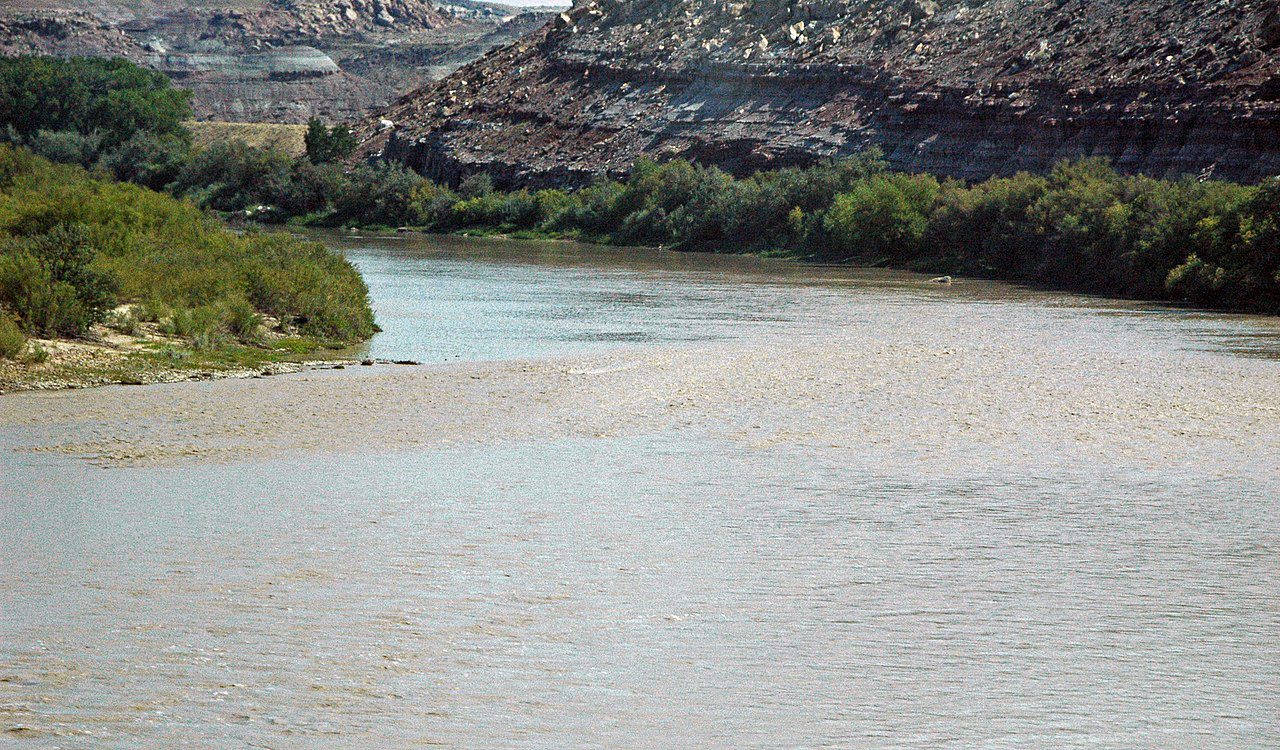- Colorado company sought to divert 55,000 acre-feet from Utah’s Green River.
- Court says Utah law, not interstate compact, governs such applications.
- Ruling reinforces state oversight of water exports and beneficial use standards.
Wednesday, October 29, 2025 — The Utah Supreme Court has upheld the state engineer’s decision to deny a Colorado company’s plan to divert 55,000 acre-feet of water from the Green River in Utah and transport it across Wyoming for use along Colorado’s Front Range. The high court’s unanimous ruling, Water Horse Resources, LLC v. Wilhelmsen (2025 UT 43), confirmed that Utah’s water export laws are valid and not preempted by the Upper Colorado River Basin Compact.
(2025 UT 43), confirmed that Utah’s water export laws are valid and not preempted by the Upper Colorado River Basin Compact.
Water Horse Resources, based in Colorado, filed an application in 2018 seeking to build a 300-mile pipeline along Interstate 80 to carry Utah water to potential users near Fort Collins. The Utah State Engineer rejected the proposal in 2020, citing the company’s failure to demonstrate that the water would be put to beneficial use in Colorado, a key requirement under Utah’s Export Statute.
Compact Law vs. State Authority.
The company argued that the 1948 Upper Colorado River Basin Compact gave it the right to “acquire rights to the use of water” within Utah for use in Colorado. The Utah Supreme Court disagreed, explaining that the compact allows such applications but does not guarantee approval.
gave it the right to “acquire rights to the use of water” within Utah for use in Colorado. The Utah Supreme Court disagreed, explaining that the compact allows such applications but does not guarantee approval.
Justice Paige Petersen Hagen, writing for the court, noted that the compact does not override state sovereignty in regulating water within its borders. “The right to acquire rights to the use of water does not mean a guaranteed right to use it,” the opinion stated.
The court emphasized that Utah’s Export Statute provides a legitimate process for evaluating applications to move water across state lines. That law requires proof that exported water “can be transported, measured, delivered, and beneficially used in the recipient state.”
Failure to Demonstrate Beneficial Use.
The justices agreed with the lower court’s finding that Water Horse failed to present any credible evidence that its project could deliver water for lawful use in Colorado.
Key facts cited included:
-
The company had not filed any water rights applications in Colorado.
-
Colorado officials stated that such diversions would require approval under Colorado law.
-
There was no assurance that the water would count toward Colorado’s share of the Upper Basin allocation.
The Utah court concluded there was no “reason to believe” the water could be put to beneficial use in Colorado, echoing the standard set out in earlier Utah cases. Without such a showing, the court said, the state engineer was required to deny the application.
Implications for Future Water Exports.
The decision reinforces Utah’s control over how its waters are managed and exported, a point that may shape future proposals to move water across state boundaries. It also underscores the ongoing importance of the “Law of the River”—the century-old network of compacts, treaties, and court decisions governing Colorado River use.
By declining to find that the Upper Basin Compact preempts state law, the court confirmed that Utah retains authority to protect its water resources and ensure compliance with both state statutes and interstate compacts.
The ruling leaves open the possibility that an export could be approved in the future, but only if an applicant can show that the water will be beneficially used under the laws of both states involved.
Image: The Green River, Town of Green River, Utah . Looking downstream. The Green River is a significant south-flowing watercourse through the Colorado Plateau and is a major tributary of the Colorado River. James St. John, September 2007. Licensed under the Creative Commons Attribution 2.0 Generic license.
. Looking downstream. The Green River is a significant south-flowing watercourse through the Colorado Plateau and is a major tributary of the Colorado River. James St. John, September 2007. Licensed under the Creative Commons Attribution 2.0 Generic license.
FAQ
What was Water Horse Resources proposing?
The company sought to divert 55,000 acre-feet of Green River water in Utah, transport it via pipeline across Wyoming, and sell it for municipal or industrial use along Colorado’s Front Range.
Why did Utah deny the application?
Utah’s State Engineer determined the company failed to meet legal requirements, showing the water could be beneficially used in Colorado and that it would be counted under Colorado’s compact allocation.
What did the Utah Supreme Court decide?
The Court unanimously affirmed that Utah’s Export Statute is valid, is not overridden by the Upper Basin Compact, and that Water Horse did not meet its burden of proof for beneficial use.
Does the decision affect other interstate water projects?
Yes. It confirms that Utah—and likely other compact states—retain control over how water is exported and used, emphasizing state-level scrutiny even for projects involving shared river systems.
What happens next for Water Horse?
Unless the company seeks federal review, the ruling effectively ends its current proposal. To renew its effort, Water Horse would need to secure approvals from both Utah and Colorado showing beneficial use and compact compliance.



